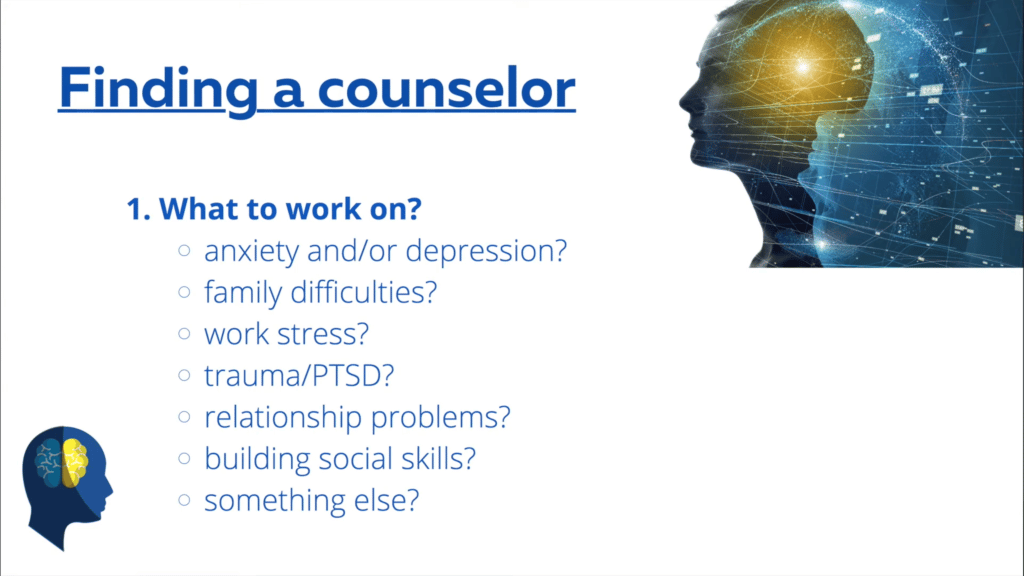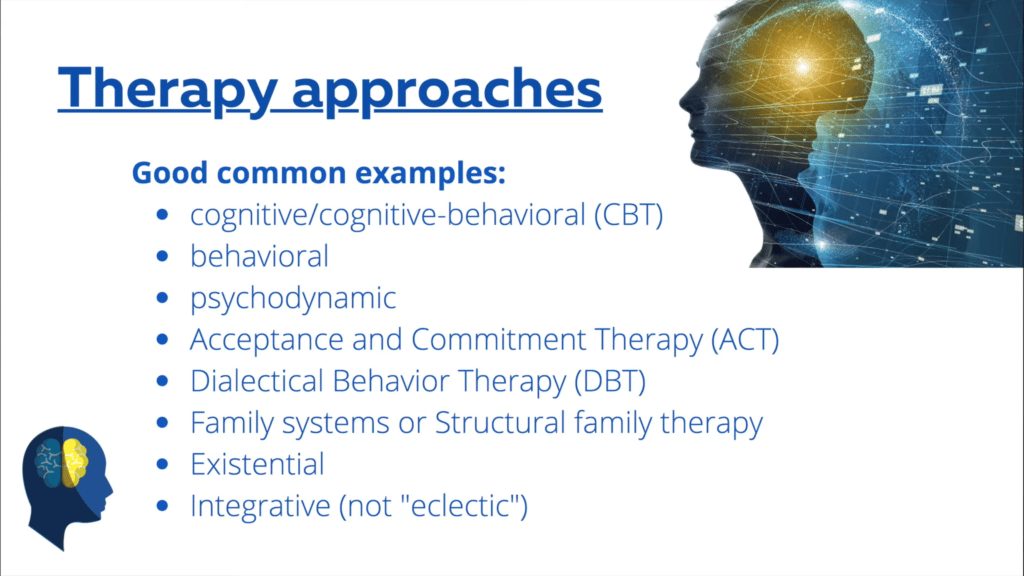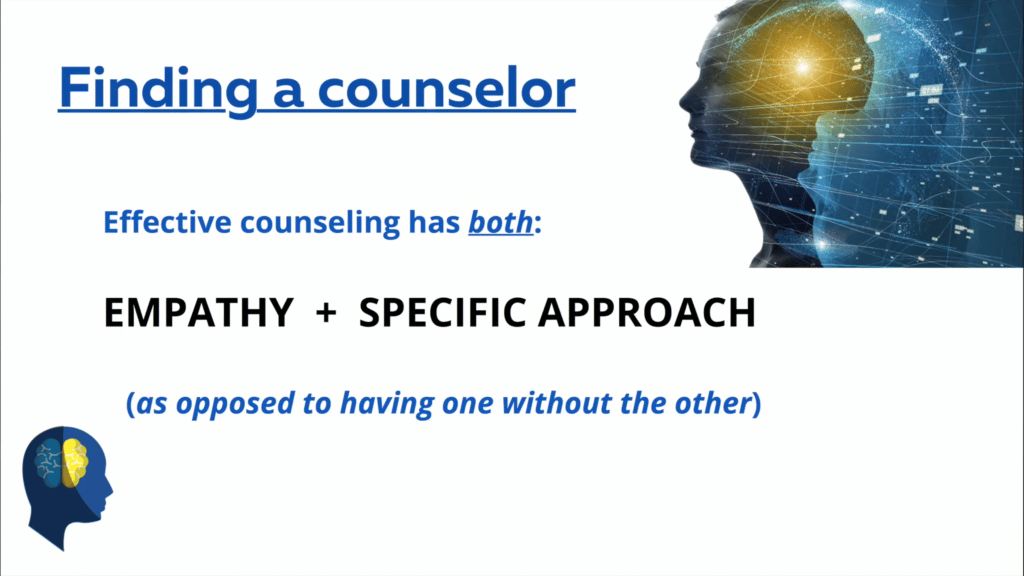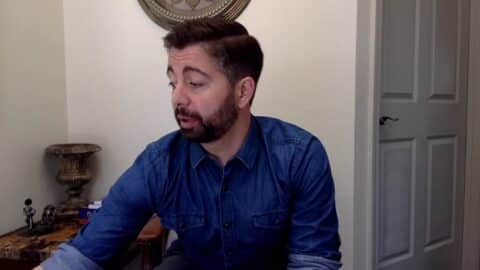How do I find a therapist? Finding a therapist/counselor can be difficult. Many of the videos I have released recommend contacting a mental health provider if feel you need to. This video describes what to look for in counseling and ways to find a counselor.
There is a great book out there that explains ways to understand types of therapists and how to find one. The book is from 2008, but still has a lot of good information to help find a therapist/counselor.
Welcome back, this is Dr. Matt B with your Emotional Minutes. When I tell people I’m a psychologist during a conversation I tend to get asked a lot of questions.
Often, the first things they ask me is if I’m analyzing them. This normally is not the case, so if you meet a psychologist, they’re usually not just trying to analyze you. But another question I often get actually is what to look for in a counselor? What tells me that somebody will help me in the way that I need help? There are a couple ways to go about that.
Finding the Right Counselor: Where to Start
One simple thing to consider is what you want to get done in counseling? Do you want to experience less depression? Do you want to improve how you interact with family members, your spouse, or a significant other? Once you know what you want, you can find providers that specialize in those types of difficulties, issues, or goals.

Look For a Specific Approach
The second way I would say is it’s usually good to look for someone who’s working from some distinct approach. What I mean by approach is a specific way of addressing situations. This can be something like a cognitive behavioral approach or a psychodynamic approach. Many mental health professionals have websites where they advertise what they do and the approach that they take.

The Importance of Empathy and Distinct Approaches
The reason to look for a real, distinct approaches is because research shows that therapy is most effective when it has two key elements. One, when the therapist has empathy, and you get a therapist who’s empathetic. Two, when they’re working from some distinct theoretical framework.

There are empathetic counselors out there who have a lot of good will behind their work, but clients feel as thought they are just talking. The person is really supportive and listens to them, but it’s just a listening, supportive session. I’ve also heard clients say that they’ve gone to counselors who have a very distinct framework, but they aren’t listening or don’t seem to understand what the person is going through.
Research has consistently found that the best therapeutic approaches tend to have both of these traits. Unfortunately, one without the other isn’t shown to work well. I usually tell people this: If you find a therapist who works from a specific approach, you’ll find out through the process if they display empathy. When you find both of those, then you’re probably in the right place and you’re probably in a good spot.
Do They Take Your Insurance?
The next question when looking for a counselor or a mental health provider is whether or not they take your insurance. This can take a little bit of background research to check into.
Usually I recommend finding three or four counselors that seem to fit your goals and have a specific approaches. Then you contact those counselors, whether you call them or check their website, to see if they take your insurance.
You can also contact your insurance company by calling or checking their website to see if the counselor is listed as a provider under your insurance. If they are, you can contact that counselor and set up an appointment from there.
If you’re looking for a counselor, good luck, and congratulations. This can often take a good amount of bravery.



